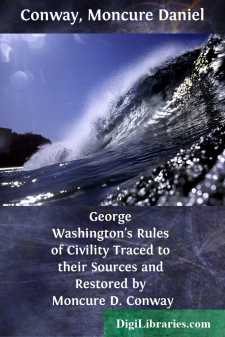Categories
- Antiques & Collectibles 13
- Architecture 36
- Art 48
- Bibles 22
- Biography & Autobiography 816
- Body, Mind & Spirit 145
- Business & Economics 28
- Children's Books 17
- Children's Fiction 14
- Computers 4
- Cooking 94
- Crafts & Hobbies 4
- Drama 346
- Education 58
- Family & Relationships 59
- Fiction 11834
- Foreign Language Study 3
- Games 19
- Gardening 17
- Health & Fitness 34
- History 1378
- House & Home 1
- Humor 147
- Juvenile Fiction 1873
- Juvenile Nonfiction 202
- Language Arts & Disciplines 89
- Law 16
- Literary Collections 686
- Literary Criticism 179
- Mathematics 13
- Medical 41
- Music 40
- Nature 179
- Non-Classifiable 1768
- Performing Arts 7
- Periodicals 1453
- Philosophy 66
- Photography 2
- Poetry 897
- Political Science 203
- Psychology 45
- Reference 154
- Religion 516
- Science 126
- Self-Help 85
- Social Science 82
- Sports & Recreation 34
- Study Aids 3
- Technology & Engineering 59
- Transportation 23
- Travel 463
- True Crime 29
Our website is made possible by displaying online advertisements to our visitors.
Please consider supporting us by disabling your ad blocker.
George Washington's Rules of Civility Traced to their Sources and Restored by Moncure D. Conway
Description:
Excerpt
THE RULES OF CIVILITY.
Among the manuscript books of George Washington, preserved in the State Archives at Washington City, the earliest bears the date, written in it by himself, 1745. Washington was born February 11, 1731 O.S., so that while writing in this book he was either near the close of his fourteenth, or in his fifteenth, year. It is entitled "Forms of Writing," has thirty folio pages, and the contents, all in his boyish handwriting, are sufficiently curious. Amid copied forms of exchange, bonds, receipts, sales, and similar exercises, occasionally, in ornate penmanship, there are poetic selections, among them lines of a religious tone on "True Happiness." But the great interest of the book centres in the pages headed: "Rules of Civility and Decent Behaviour in Company and Conversation." The book had been gnawed at the bottom by Mount Vernon mice, before it reached the State Archives, and nine of the 110 Rules have thus suffered, the sense of several being lost.
The Rules possess so much historic interest that it seems surprising that none of Washington's biographers or editors should have given them to the world. Washington Irving, in his "Life of Washington," excites interest in them by a tribute, but does not quote even one. Sparks quotes 57, but inexactly, and with his usual literary manipulation; these were reprinted (1886, 16°) by W.O. Stoddard, at Denver, Colorado; and in Hale's "Washington" (1888). I suspect that the old biographers, more eulogistic than critical, feared it would be an ill service to Washington's fame to print all of the Rules. There might be a scandal in the discovery that the military and political deity of America had, even in boyhood, written so gravely of the hat-in-hand deference due to lords, and other "Persons of Quality," or had concerned himself with things so trivial as the proper use of the fork, napkin, and toothpick. Something is said too about "inferiours," before whom one must not "Act ag'tt y'e Rules Moral." But in 1888 the Rules were subjected to careful and literal treatment by Dr. J.M. Toner, of Washington City, in the course of his magnanimous task of preserving, in the Library of Congress, by exact copies, the early and perishing note-books and journals of Washington. This able literary antiquarian has printed his transcript of the Rules (W.H. Morrison: Washington, D.C. 1888), and the pamphlet, though little known to the general public, is much valued by students of American history. With the exception of one word, to which he called my attention, Dr. Toner has given as exact a reproduction of the Rules, in their present damaged condition, as can be made in print. The illegible parts are precisely indicated, without any conjectural insertions, and young Washington's spelling and punctuation subjected to no literary tampering.
Concerning the source of these remarkable Rules there have been several guesses. Washington Irving suggests that it was probably his intercourse with the Fairfax family, and his ambition to acquit himself well in their society, that set him upon "compiling a code of morals and manners." (Knickerbocker Ed....




